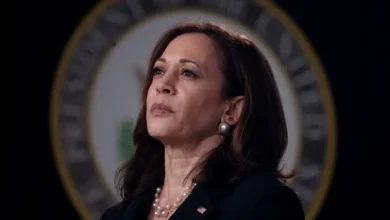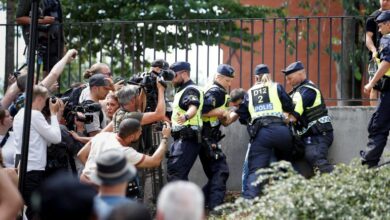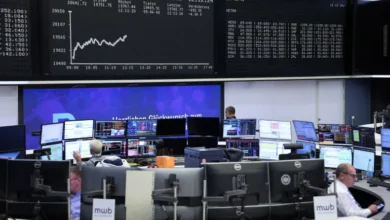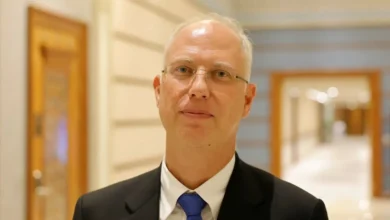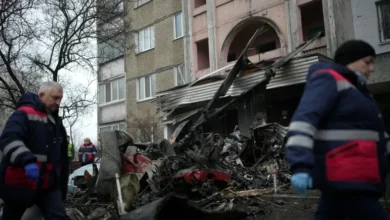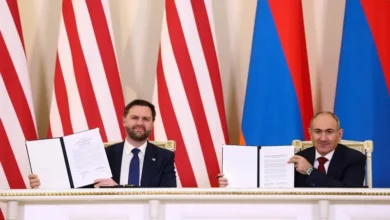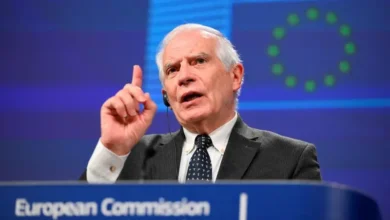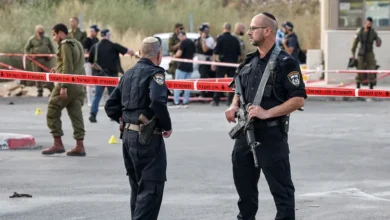UK to spend 2.5 percent of GDP on defense by 2030, says Sunak
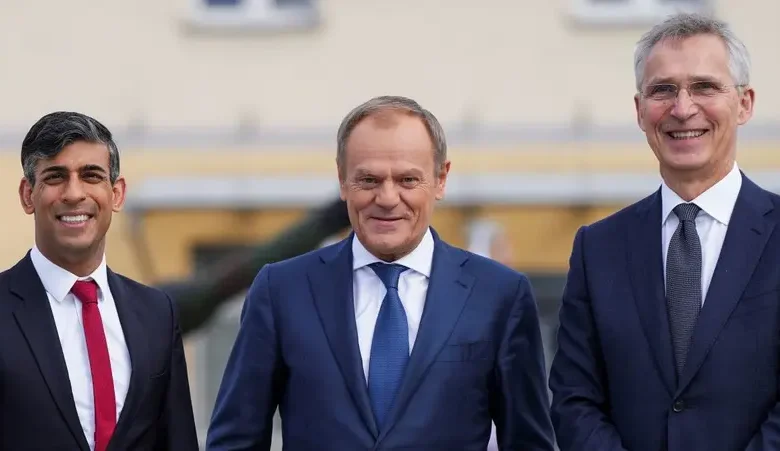
Prime Minister Rishi Sunak said on Tuesday he would lift defense spending to 2.5 percent of GDP to reach 87 billion pounds ($108 billion) a year by 2030, saying Britain could not be complacent when the world was at its most dangerous since the Cold War.
Standing alongside NATO leader Jens Stoltenberg, Sunak said defense would get an additional 75 billion pounds over six years to ramp up the production of munitions, making Britain the second-largest defense spender in NATO.
He said one of the central lessons of the war in Ukraine was that countries needed deeper stockpiles of munitions, and that they needed to be able to replenish them more quickly.
“We will put the UK’s own defense industry on a war footing,” he said.
Sunak has been under pressure from his governing Conservative Party to boost defense spending more quickly after he previously said he could do so only “as soon as economic conditions allow.”
The rise, from around 2.32 percent of gross domestic product, could also weaken potential leadership challengers who have championed defense, before an election this year which Sunak’s Conservatives are expected to lose.
“In a world that is the most dangerous it has been since the end of the Cold War, we cannot be complacent,” he said. “As our adversaries align, we must do more to defend our country, our interests, and our values.”
“Today is a turning point for European security and a landmark moment in the defense of the United Kingdom. It is a generational investment in British security and British prosperity, which makes us safer at home and stronger abroad.”
The commitment could help Britain if Donald Trump wins re-election to the US Presidency this year. Trump has frequently taken aim at the failure of many of NATO’s 32 members to spend at least 2 percent of gross domestic product on defense.
Air defense
The announcement followed Sunak’s pledge to increase Britain’s military support for Ukraine by 500 million pounds to take its total for this financial year to 3 billion pounds – a move welcomed by Ukrainian President Volodymyr Zelenskyy.
The Ukrainian leader has repeatedly called for more air defense systems to protect Ukraine from increasing Russian bombardment, and Germany has spearheaded calls for members of the NATO military alliance and beyond to step up on deliveries.
Asked whether Britain was backing Germany’s proposal to find more air defense systems, Sunak reiterated what Britain had already delivered, and said the new package – including 60 boats, more than 1,600 strike and air defense missiles and nearly 4 million rounds of ammunition – would also help Ukraine.
Britain has deployed the anti-air and anti-missile Sky Sabre system to Poland to help its defenses.
“So I agree that air defense is one of the critical areas where Ukraine needs support. And indeed, actually I was on the phone with Zelenskyy this morning,” Sunak told reporters.
Zelenskyy welcomed the new package, saying on X: “Storm Shadow and other missiles, hundreds of armored vehicles and watercraft, ammunition — all of this is needed on the battlefield.”
Sunak also met Polish Prime Minister Donald Tusk and, on Wednesday, will meet German Chancellor Olaf Scholz.
He repeated his argument that Britain had frequently been first to deliver weapons to Ukraine and called on other European countries to fulfil their NATO commitments.
“It’s also right we do our bit and that’s why it’s important Europeans invest in their own security at the same time. That’s what we’ve always done,” Sunak said.
